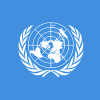Additional substantive discussions and closing of the session
14 Feb 2020 16:00h - 19:00h
Event report
The ninth meeting of the second substantive session of the Open-Ended Working Group (OEWG) was envisioned as additional time for any substantive discussions, as previous agenda items may have required more in-depth discussion and may have run over the allotted time. The delegations made comments about new norms, applicability of international law, confidence-building measures (CBMs), capacity building, and the elements the report of the second session of the OEWG should contain.
On norms, the Islamic Republic of Iran noted that the OEWG should allocate more time to review the already identified norms, and that the group should be open to receiving proposals on possible additional norms. On the other hand, Japan stated that the newly proposed norms by other delegations could be grouped under the existing norms of the previous UN GGE reports.
While there is common recognition that international law, the UN Charter, and international humanitarian law apply to cyberspace, as Japan noted, there are issues which need further elaboration, Indonesia cautioned. Mexico also noted that it is still unclear how international law applies to cyberspace, and suggested that the International Law Commission should conduct a study in this regard, which would be complementary to national positions.
Chile suggested that the OEWG should move forward on specific proposals for implementation in this area. The OEWG should engage in detailed discussions to identify areas where development of cyber-specific laws are necessary, the Islamic Republic of Iran suggested. This should address concerns such as offensive strategies turning cyberspace into a battlefield, as well as imposing unilateral, coercive, and other limiting and blocking measures against target countries.
Japan reiterated its position that member states should implement what was agreed in previous GGE reports with respect to the applicability of international law as well as the norms, rules, and principles for Responsible State Behavior in Cyberspace, rather than into protracted negotiation on a legally binding instrument. Australia requested that the OEWG report reflect that many delegates had expressed views that a binding instrument is necessary, but also that a number of delegates have expressed the view that international law can evolve via customary international law.
The complementarity between the work of the OEWG and the UN GGE was underlined by Egypt, Singapore and Japan. Egypt suggested that there should be a mechanism for the UN GGE to share its working papers or proposals with the OEWG. Japan stressed that the implementation of the UN GGE consensus reports of 2010, 2013, and 2015 should be considered as one of the major achievements of the OEWG.
The report of the OEWG should reflect the whole spectrum of positions raised by countries during the discussions, the delegations of Indonesia, UK, the Syrian Arab Republic, and Belarus noted.
There are more areas of convergence than areas of divergence between member states, Egypt, UK, Australia, and Chile highlighted. The UK expressed hope that the OEWG report will focus on the 80% of areas where convergence can be found. Plausible consensus can be found in the areas of capacity building and CBMs, Chile and Indonesia noted. Singapore also suggested that the member states should focus on the areas where they can find common ground, but also acknowledged that there are areas that will take longer to discuss.
The report will hopefully contain practical recommendations, Indonesia stated, while Syria expressed hope that the recommendations will be forward-looking. The six elements the UNGA mandated the OEWG to discuss – existing and potential threats, international law, norms for Responsible State Behaviour in Cyberspace, CBMs, capacity building, and regular institutional dialogue – should be mentioned in a balanced manner in the report, Japan noted.
The Islamic Republic of Iran suggested that the Chair should underline in his next report, and as well as in the final report to the General Assembly, the need for the OEWG to continue its work beyond 2020. Additionally, Iran suggested that given the scope of its work, the OEWG may need to establish sub-OEWGs to assist in parts of its mandate.
Related topics
Related event

Open-Ended Working Group (OEWG) – Second substantive session
10 Feb 2020 10:00h - 14 Feb 2020 08:00h
New York, USA
